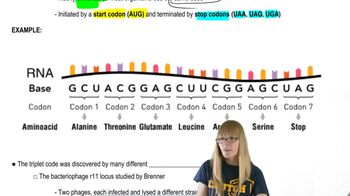In this chapter, we focused on cancer as a genetic disease, with an emphasis on the relationship between cancer, the cell cycle, and DNA damage, as well as on the multiple steps that lead to cancer. At the same time, we found many opportunities to consider the methods and reasoning by which much of this information was acquired. From the explanations given in the chapter,
How do we know that cancer cells contain defects in DNA repair?
How can mutations in non-coding segments of DNA contribute to the development of cancers?
 Verified step by step guidance
Verified step by step guidance
Verified Solution
Key Concepts
Non-coding DNA

Mutations

Cancer Development

Where are the major regulatory points in the cell cycle?
List the functions of kinases and cyclins, and describe how they interact to cause cells to move through the cell cycle.
What is the difference between saying that cancer is inherited and saying that the predisposition to cancer is inherited?
As a genetic counselor, you are asked to assess the risk for a couple with a family history of familial adenomatous polyposis (FAP) who are thinking about having children. Neither the husband nor the wife has colorectal cancer, but the husband has a sister with FAP. What is the probability that this couple will have a child with FAP? Are there any tests that you could recommend to help in this assessment?
What is apoptosis, and under what circumstances do cells undergo this process?
